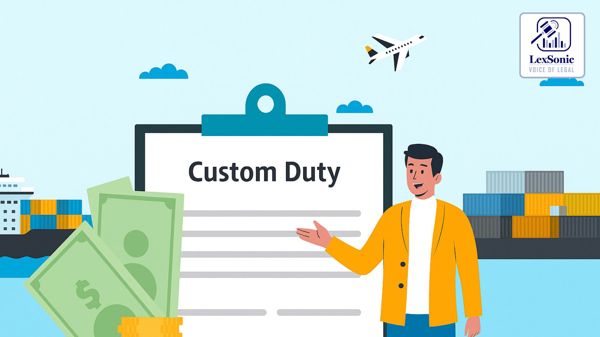Court Decision on Customs Appeal Involving Vehicle Import and Provisional Release Conditions.
14 August 2024
Custom Duty >> Tax Laws
In a recent legal development, a significant case of Commissioner of Customs, JNCH, Maharashtra vs Modern Trading & Logistics LLP, Mumbai concerning the importation and provisional release of a motor vehicle was concluded with the dismissal of an appeal filed by the appellant. The appeal contested the decision of the Customs Excise and Service Tax Appellate Tribunal (CESTAT) that had earlier ruled in favor of the respondent.
Background:
The respondent, an importer, had filed a bill of entry on January 3, 2019, for a Toyota Hiace Commuter Van with a declared invoice value of USD 40,200. The assessable value of the vehicle was pegged at Rs. 28,74,545, with the declared duty amounting to Rs. 18,16,713. However, the vehicle was seized by the Special Intelligence and Investigation Branch (SIIB) on February 6, 2019, based on suspicions that it was second-hand rather than new as claimed by the importer. This led to a contention that the import violated specific policy conditions under Chapter 87 of the Customs Tariff Act, 1975.
The respondent sought provisional release of the vehicle by agreeing to pay the duty. On February 15, 2019, the Deputy Commissioner of Customs allowed for the provisional release subject to payment of the duty and compliance with additional conditions outlined in Circular No.35/2017-Cus dated August 16, 2017. Dissatisfied with these conditions, the respondent filed an appeal before the Commissioner (Appeals), which was subsequently rejected on May 15, 2019. An appeal was then made to the CESTAT, which on December 7, 2022, ruled in favor of the respondent. The CESTAT found that the inclusion of certain policy conditions was redundant and not required for provisional release. This decision prompted the appellant to challenge the ruling in a higher court.

Key Issues and Court Ruling:
The appellant proposed two main questions of law for consideration:
- Whether the CESTAT was correct in deeming the requirement for vehicle testing by the Vehicle Research and Development Establishment (VRDE) or the Automotive Research Association of India (ARAI) as redundant.
- Whether the CESTAT was correct in relying on a prior decision by the Kerala High Court in the case of Commissioner of Customs v. Ankineedu Maganti (2012 (275) ELT 551 (Ker.)).
The court acknowledged that different policy conditions apply to new versus used vehicles. The condition in dispute had been previously examined in the Ankineedu Maganti case, where it was established that such requirements were intended to ensure compliance with road safety regulations and essential legal stipulations for vehicle registration. This perspective was endorsed by the Kerala High Court.
The court noted that the CESTAT had considered the relevant facts, including the vehicle’s registration under the Motor Vehicles Act, 1988, which indicated compliance with operational standards. Given that the vehicle was registered and compliant, the conditions in question were deemed unnecessary for provisional release.
Conclusion:
In conclusion, the court found that the CESTAT's decision was justified and no substantial legal question arose from it. As a result, the appeal was dismissed, affirming the lower tribunal's ruling that the contested policy conditions were indeed redundant in the context of the provisional release of the vehicle. This decision underscores the judiciary's focus on practical compliance and regulatory coherence in the realm of importation and customs enforcement.
Customs Act, 1962 CUSTOMS TARIFF ACT, 1975
